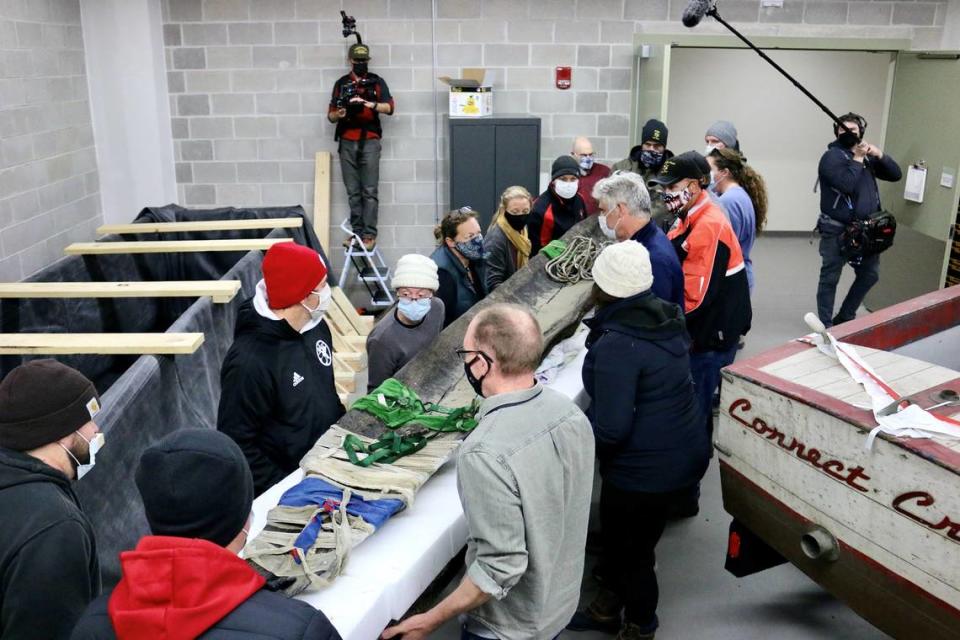1,200-year-old canoe found in Wisconsin lake, officials say. ‘A remarkable artifact’
Archaeologists uncovered a “significant” artifact Nov. 2 from a Wisconsin lake that predates the arrival of European colonizers into North America.
First discovered in June, a wooden canoe was recovered still intact this week by archaeologists from the bottom of Lake Mendota in southern Wisconsin, according to the state’s historical society. Through carbon dating, officials have determined the canoe is 1,200 years old — used around 800 AD.
“By taking action today to preserve this canoe we are protecting a piece of history for future generations,” said Christian Overland, CEO for the Wisconsin Historical Society in a statement. “The canoe is a remarkable artifact, made from a single tree, that connects us to the people living in this region 1,200 years ago.”
Divers from the Dane County Sheriff’s Office assisted the historical society in raising the canoe to shore as it was 30 feet deep in the water, officials said.
The dugout canoe was found with net sinkers, indicating it was used for fishing, WKOW reported.
Video shared by the Wisconsin State Journal shows the canoe being carried to land as observers cheer the historic moment.
“This is the first time this thing has been out of the water in 1,200 years. And maybe they left from this very beach to go fishing,” James Skibo, Wisconsin’s state archaeologist, told the State Journal. “Not only has it been underwater; it’s been under the ground.”

Skibo said it’s rare to come across an intact archaeological record, according to the Milwaukee Journal Sentinel. About 99% of what is found is broken or things people have tossed, the archaeologist said.
The canoe was uncovered in June by the water’s current, allowing algae and organisms to infiltrate the wood after it was discovered during the summer, the Milwaukee Journal Sentinel reported. Archaeologists risked the canoe deteriorating if they waited any longer to remove it from the lake.
The canoe was taken to Wisconsin’s State Archive Preservation Facility, where it will be protected from physical deterioration, the historical society said. It will take three years to preserve the condition of the canoe.
Ancestors of the Ho-Chunk Nation likely built the canoe, the State Journal reported. One theory suggests the tribe migrated into Wisconsin between 800 and 1200 AD, according to the Milwaukee Public Museum.
“We’ve assumed they were fishing in Lake Mendota. Now we know they were fishing in Lake Mendota, and we have an idea of how they were fishing in Lake Mendota,” terrestrial archaeologist Amy Rosebrough told the Journal Sentinel.
The canoe will eventually be moved to the society’s new history museum, which is slated to open in 2026.
“We are excited about the new possibilities (the canoe) offers to share Native American stories and culture through the present day,” Overland said in a statement.
Shipwrecks can go ‘missing’ off Outer Banks. Here’s why NOAA team went hunting for 13
Search launched for historic ship that vanished off Florida after 1942 U-boat strike

